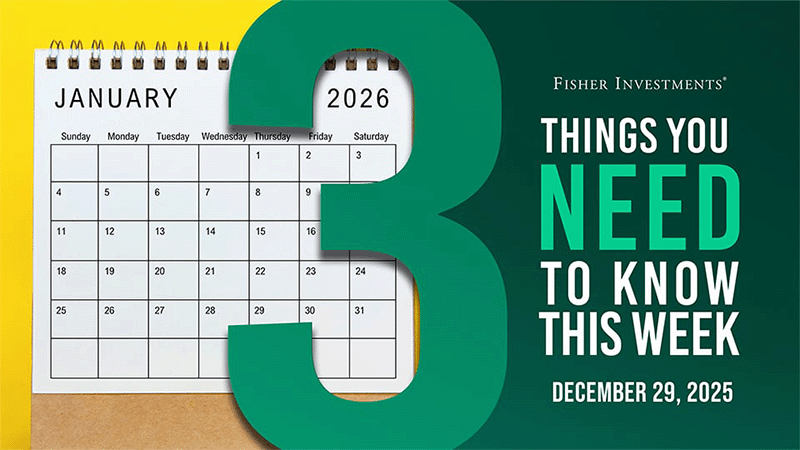Personal Wealth Management / Economics
Invest for the Future, Not the Present
During economic downturns, many wait for signs of recovery before investing. But investment decisions based on today's news only puts investors behind.
Story Highlights:
- Two big news items took center stage on Friday—the first official Eurozone recession and the largest drop in US retail sales on record (sort of).
- Many people are understandably frightened of stocks because of recent market activity. And many have been talking about a catastrophic global recession for quite some time. But these fears are well known, and recent economic activity is already reflected in current market prices.
- The market doesn't ponder the past—it looks ahead and so should long-term investors.
________________________________________________________________________
Investors began Friday by digesting news of the first official economic recession in the Eurozone and the largest drop in US retail sales on (a very short) record. For many, it makes sense to believe the market dropped today because there were negative headlines. If it were only that easy. Alas, the market doesn't work so simply. We'll elaborate as to why, but first let's review the two big news items.
Since the adoption of the euro in 1999, the Eurozone as a whole has consistently recorded economic growth—until now. For the first time in its brief history, the Eurozone economy has experienced two consecutive quarters of negative GDP growth—its first technical recession. Of course, this isn't a declaration worth celebrating. But a review of the figures also indicates a mild contraction so far: The second and third quarters of 2008 each saw Eurozone GDP decline by 0.2%. However, the absolute amount of economic output remains 0.8% above where it was at this time last year. Of the 27 countries belonging to the EU, only 15 use the euro as their currency. It is these 15 countries that recorded a recession. After the announcement, some pundits warned the worst is yet to come, while ECB central banking officials scrambled to restore confidence.
As for US retail sales, the largest drop on record exacerbated existing fears consumer spending, which accounts for roughly 70% of US GDP, will remain weak in the months ahead. October retail sales were down 2.8%, which represented the fourth straight monthly decline. And with additional job cuts expected in many economic sectors, analysts predict further declines. The US Commerce Department began keeping retail sales data in 1992 (not a very long time series), and this is the longest string of consecutive monthly declines since.
So, how do you invest based on this news? The short answer: You shouldn't. Investing on today's news is like driving while looking in the rear-view mirror. During economic downturns, some investors exit stocks and wait for signs of recovery before reinvesting. It's common to hear investors say things like, "I'm heading to the sidelines to sit this one out until things calm down. I'll get back in once things improve." Of course, this is understandable given the unprecedented volatility, but it is also potentially detrimental to long-term investment returns.
Why? Because historically markets tend to begin recovering long before the economy shows signs of improvement. By sitting on the sidelines until rosy headlines emerge, an investor will almost surely miss the initial steep, sharp upswing typical of recoveries off market bottoms. The thrum of negative headlines and doldrum data will persist long after a new bull market begins. These initial recoveries account for a disproportionate amount of long-term stock returns. Trying to time in and out of the market during this period or waiting for better days to invest will all but ensure an investor misses precious upside.
We've often, and recently, discussed in this space how current market prices already reflect public knowledge about global economic woes. Because the market discounts known information and behaves like a leading indicator, it's possible recent stock declines may very well be telling us the worst is yet to come for the global economy. But it shouldn't be deduced that any further economic weakness indicates the worst is yet to come for stocks. History simply doesn't support such a claim.
The negative economic headlines will likely persist as the global economy bottoms out. But if you're a long-term investor, don't avoid investing now because of the present state. In a few years much of what's transpired recently will likely be reduced to distant, ugly memories and trading-floor war stories. Perhaps now more than ever it's best to realize that when it comes to investing, don't focus on the present or lament the past—invest for the future.
If you would like to contact the editors responsible for this article, please message MarketMinder directly.
*The content contained in this article represents only the opinions and viewpoints of the Fisher Investments editorial staff.
Get a weekly roundup of our market insights
Sign up for our weekly e-mail newsletter.

You Imagine Your Future. We Help You Get There.
Are you ready to start your journey to a better financial future?

Where Might the Market Go Next?
Confidently tackle the market’s ups and downs with independent research and analysis that tells you where we think stocks are headed—and why.





